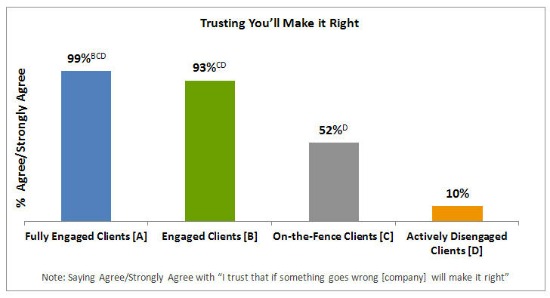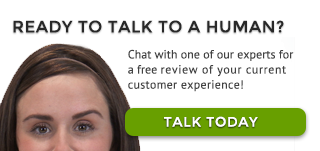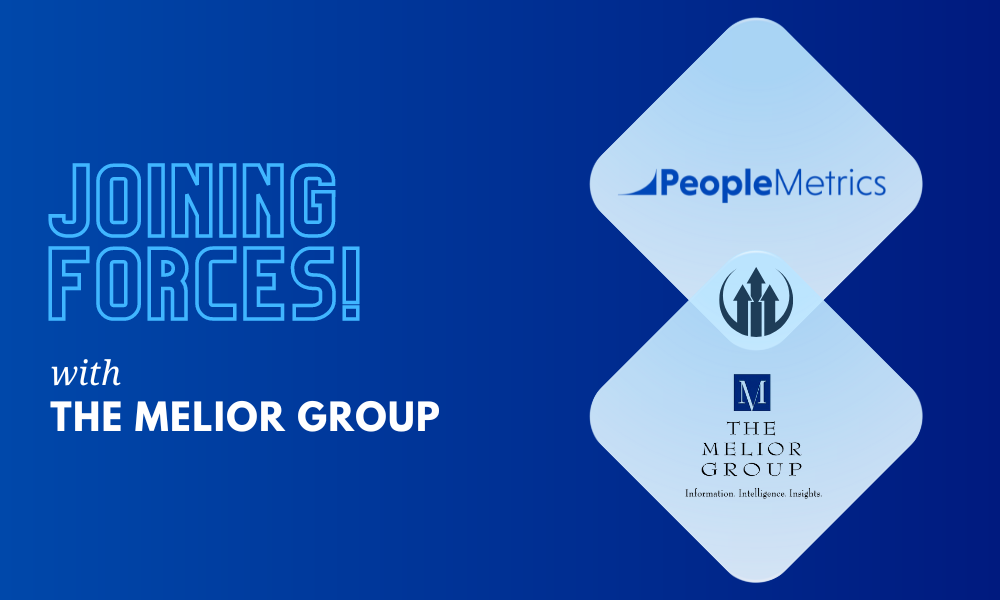Republished with permission from CustomerThink.com
Recently I was given a Kindle for a birthday gift; one week later it quit working. A few days after, I mentioned to a friend that I had received this gift, and she asked to see it. "Well it's not working at the moment," I replied. She looked horrified. "Can you return it?! Do you have a gift receipt?!" she inquired. "Well not yet…but…I mean…I don't think it will be a problem," I stumbled along as she looked increasingly upset at my predicament. "It's Amazon!" I finally burst out triumphantly. And I was right.
The very day after I messaged a customer service rep, a new Kindle was sent my way. No questions asked. No demands for gift receipts with impossible 10-digit codes. No accusations that I mishandled the device. No suspicion. They just sent me a new Kindle. And I never had to tell the gift-giver that the item was defective.
Trust in the Client Experience
Now imagine that the damaged product isn't a $100 item, but a $200,000 consulting project? And the horrified friend is a colleague, and the awkward conversation won't be with a kind gift-giver, but with a boss who believed that the chosen consulting firm would make the project successful. Imagine the supreme comfort that would come with being able to say, "Oh, I'm really not worried at all, I'm sure our trusted partner will take care of it."

Of course trust is "just" a feeling, but our b2b Most Engaged Customers study offered some insight into just how important this feeling is to client engagement. 99% of Fully Engaged clients report that they agree or strongly agree with the statement, "I trust that if something goes wrong [company] will make it right. Contrast this with just 10% of Actively Disengaged clients who feel the same way.
It is worth noting that our Engagement metric is rather stringent. A Fully Engaged Client is someone who says that they will absolutely:
- Keep working with you
- Go out of their way to work with you
- Recommend you
- And that they love the experience of working with you
In short, these are the most valuable clients you have, and 99% of them trust you. Want more Engaged clients? Start nurturing trust.
Building Trust
In a 2009 article, Dov Seidman offers sound advice on how to earn trust: "It doesn't hurt to be honest and ethical. What most managers don't get, though, is that the best way to build trust is to extend it to others." In the same way that Amazon extended trust to me by effortlessly replacing my damaged device, Dov offers bold examples of other organizations doing the same. Netflix trusting their employees to take whatever vacation they feel they need; Radiohead, who released their album and asked their fans to pay what they want; and his own company, LRN, who has done away with detailed expense reports.
The "free" Radiohead album generated higher revenues than all previous releases, LRN realized much higher levels of trust in senior leadership, and Amazon got 80% of my Christmas shopping business.
The Cost of Low-Trust
In the article, "The Economics of Trust," Stephen M.R. Covey offers insight into the financial gains of trust, "Trust always affects two measurable outcomes – speed and cost. When trust goes down, speed goes down and cost goes up. This creates a trust tax. When trust goes up, speed goes up and cost goes down. This creates a trust dividend. It's that simple, that predictable."
When Amazon chose to trust me, they increased speed, reduced the cost of customer service, and as an added bonus claimed a large portion of my Holiday budget.
And it's not just me. A recent Peppers & Rogers Group Study, "Trustability in Healthcare," found that respondents were willing to pay an average $30 a month more to work with an insurer they trust. Stephen Covey cites a 2002 Watson Wyatt surveyed 12,750 workers across industries and found that high-trust organizations had a total return to shareholders that was 286% higher than low-trust organizations.
Using Customer Feedback to Nurture Trust
In "Market, Hierarchy, and Trust: The Knowledge Economy and the Future of Capitalism," Paul S. Adler offers a warning to business leaders:
Economic and organizational theory have shown that, compared to trust, price and authority are relatively ineffective means of dealing with knowledge-based assets. Therefore, as knowledge becomes increasingly important in our economy, we should expect high-trust institutional forms to proliferate.
Or put more simply, as data, information, and knowledge continue to grow so will the need to deeply trust those who handle it. Being the biggest in your industry with the most competitive prices won't work as a business strategy in a market that places a premium on trust.
Customer feedback, collected through client satisfaction surveys, creates a bright opportunity to find out what builds trust with your customers and clients. And as you think about how to improve your delivered customer experience, begin examining how you could lower your trust tax by extending trust to your employees and clients.
~Janessa Lantz
Copyright CustomerThink Corp.





